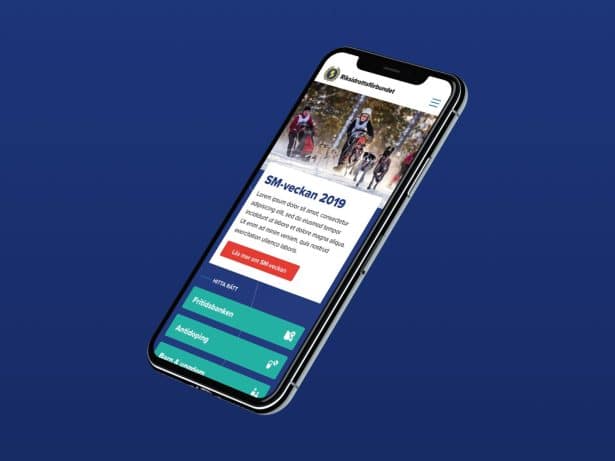It’s been five years since we at Mild started working with and offering HubSpot as a service. During that time, we’ve learned a lot – both from our own implementation and, more importantly, from guiding our clients on how to make the most of the platform. Over a coffee chat with HubSpot specialists Pontus Arvidson and Alexander Seibel, we took the opportunity to reflect on the journey.
What have they learned? What are the biggest insights? And how can you, if you’re considering HubSpot, benefit from their experience?
Here are our key lessons, biggest takeaways – essentially, the insights we’ve gathered to help you maximize HubSpot.
1. Goodbye, messy processes!
Before we started using HubSpot, tracking our efforts was a challenge. Leads came in – but we didn’t always know exactly how or why. Which campaign had driven results? What was actually working?
Today, we have complete control. We can track every deal, understand what drives conversions, and help our clients do the same.
"Many companies think they have everything under control, but in reality, they have no idea how many leads they generate, where they come from, or if they’re even being followed up on. With HubSpot, you get clear, data-driven insights into what works – and what needs improvement," says Pontus Arvidson, HubSpot Specialist at Mild.
"But HubSpot isn’t just a way to get better insights; it also acts as a mirror for the organization. Many companies realize that their internal processes aren’t working as efficiently as they thought. We help identify bottlenecks and streamline the flow," says Alexander Seibel, HubSpot Specialist at Mild.
A great example? Customer service cases and surveys are directly linked to contact records, meaning sales, support, and account managers all have full visibility of the customer journey. Everyone knows what’s happened, what needs to be addressed, and can act immediately. And the best part? Automation sorts and prioritizes inquiries based on customer responses – ensuring the right action is taken immediately instead of getting stuck in an email thread that no one wants to handle.
2. The perfect timing? Right now.
One of the most common questions we get:
"When is the right time to implement HubSpot?"
The answer? It’s not about revenue or team size – it’s about your needs.
"HubSpot is all about business development. Many think they’re just implementing a tool, but it’s really about getting the entire organization to work smarter. That’s why starting with the right mindset is more important than waiting for the ‘perfect’ moment," says Alexander.
"Since HubSpot is easy to scale, you can start with one hub and expand when needed. Today, the entry barrier is low, and HubSpot has even reduced pricing to make it more accessible for smaller companies," adds Pontus.
3. A clear customer journey = more business
One of the biggest issues we see is that many companies lack a clear strategy for managing leads.
"If you have 100 contacts, every contact should have a status. The whole point of HubSpot is that customers should be nurtured based on where they are in the system – 100 customers, 100 different strategies. No more lost leads," says Pontus.
If the marketing team is generating leads, but sales doesn’t know how to follow up – you’re losing business opportunities. With HubSpot, you get full visibility and can optimize every step of the process.
"A common challenge is the disconnect between marketing and sales. HubSpot forces them to align their processes. It becomes clear what works and what doesn’t – and for many organizations, that’s a real eye-opener," adds Alexander.
Alexander"A common challenge is the disconnect between marketing and sales. HubSpot forces them to align their processes. It becomes clear what works and what doesn’t – and for many organizations, that’s a real eye-opener."
HubSpot Specialist, Mild
4. Engagement in, results out
Setting up HubSpot is one thing – but getting real results requires commitment from the organization.
"It’s easy to see HubSpot as a quick fix, but it still needs strategy and structure to deliver results. The best projects we’ve worked on have been with engaged clients who see HubSpot as part of their business development – not just a tool," says Alexander, and continues:
"The best clients have a reasonable budget, a proactive mindset, and a willingness to evolve. There needs to be someone internally who owns the process and ensures teams are actively working within their respective hubs. The mindset should always be forward-thinking!"
5. Mild + HubSpot = more business
At Mild, we don’t just implement HubSpot – we make sure it actually generates business. We can be there every step of the way or just support you during the initial setup, depending on your needs.
Our goal? To build a lead generation engine that nurtures and converts contacts around the clock – not just a system for sending newsletters.
"HubSpot is the most user-friendly CRM on the market, but it still requires strategy and structure to unlock its full potential. That’s where we come in – we ensure sales gets nurtured leads, automation runs smoothly, and HubSpot becomes a true growth engine, not just a data storage platform," says Pontus.
Are you ready to take the next step with HubSpot?
Right now, you can book a free 45-minute strategy session with our HubSpot specialists, Alexander and Pontus. Take this opportunity to get tailored, actionable tips for your business – completely free of charge.


